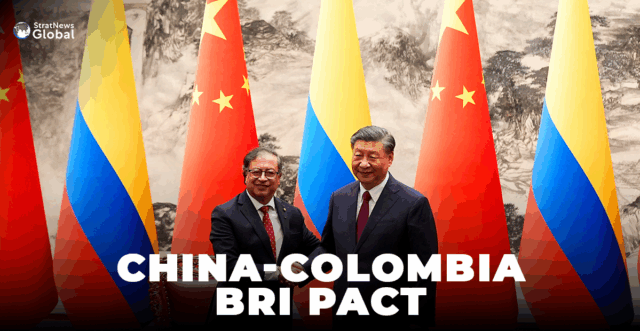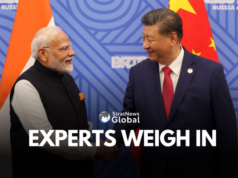China and Colombia have signed a joint cooperation plan under the Belt and Road Initiative, according to state media reports following a meeting between their leaders in Beijing on Wednesday.
Burgeoning commerce in recent years has helped grow Beijing’s influence in Latin America and the Caribbean, a region of strategic significance for the United States.
China is Colombia’s second-largest trading partner after the United States, which it recently displaced as Colombia’s largest source of imports.
China is ready to import more high-quality products from Colombia, back its firms in investing and doing business there and join in infrastructure construction, President Xi Jinping told counterpart Gustavo Petro, the Xinhua news agency said.
On Monday, Petro said Colombia would join the Belt and Road Initiative launched by Xi in 2013 to recreate the ancient Silk Road and build China’s trade and infrastructure links with the world.
More than 20 Latin American nations are among the more than 150 countries participating in the programme, but in February Panama said it was exiting from the pact, a move China blamed on pressure from the United States.
Petro, who took over in August 2022, made his first trip to China as president in October 2023, upgrading to a strategic partnership two-way ties first established in 1980.
Belt And Road Initiative
China’s Belt and Road Initiative (BRI), launched in 2013, is a global development strategy aiming to enhance international trade and stimulate economic growth across Asia, Europe, and Africa.
Often described as the modern Silk Road, the initiative seeks to build infrastructure, improve trade routes, and foster economic ties between participating countries through investments in roads, railways, ports, and energy projects.
The BRI encompasses over 140 nations and has become a major component of China’s foreign policy.
The initiative is intended to promote economic cooperation and cultural exchange, as well as to provide a platform for China to exert influence globally.
However, it has also faced criticism, particularly regarding the increasing debt burden on participating countries, concerns over transparency, and the potential for China to gain undue political and strategic leverage.
(With inputs from Reuters)





